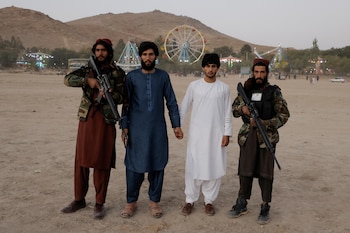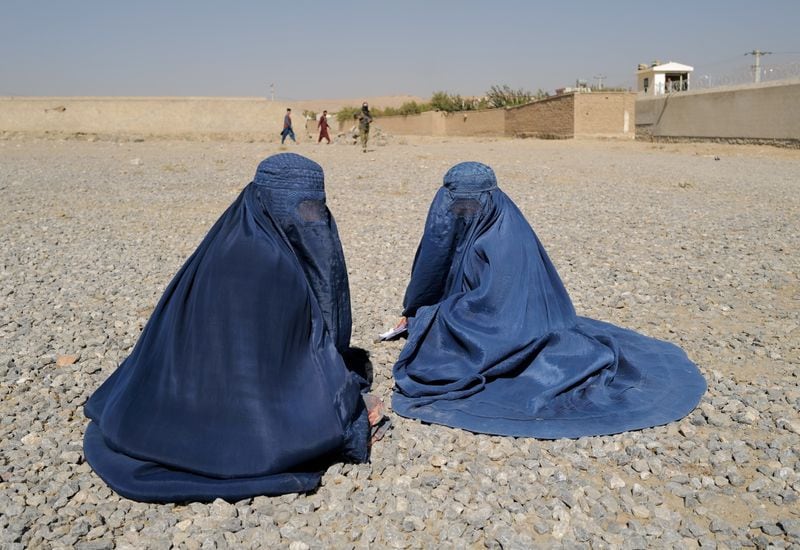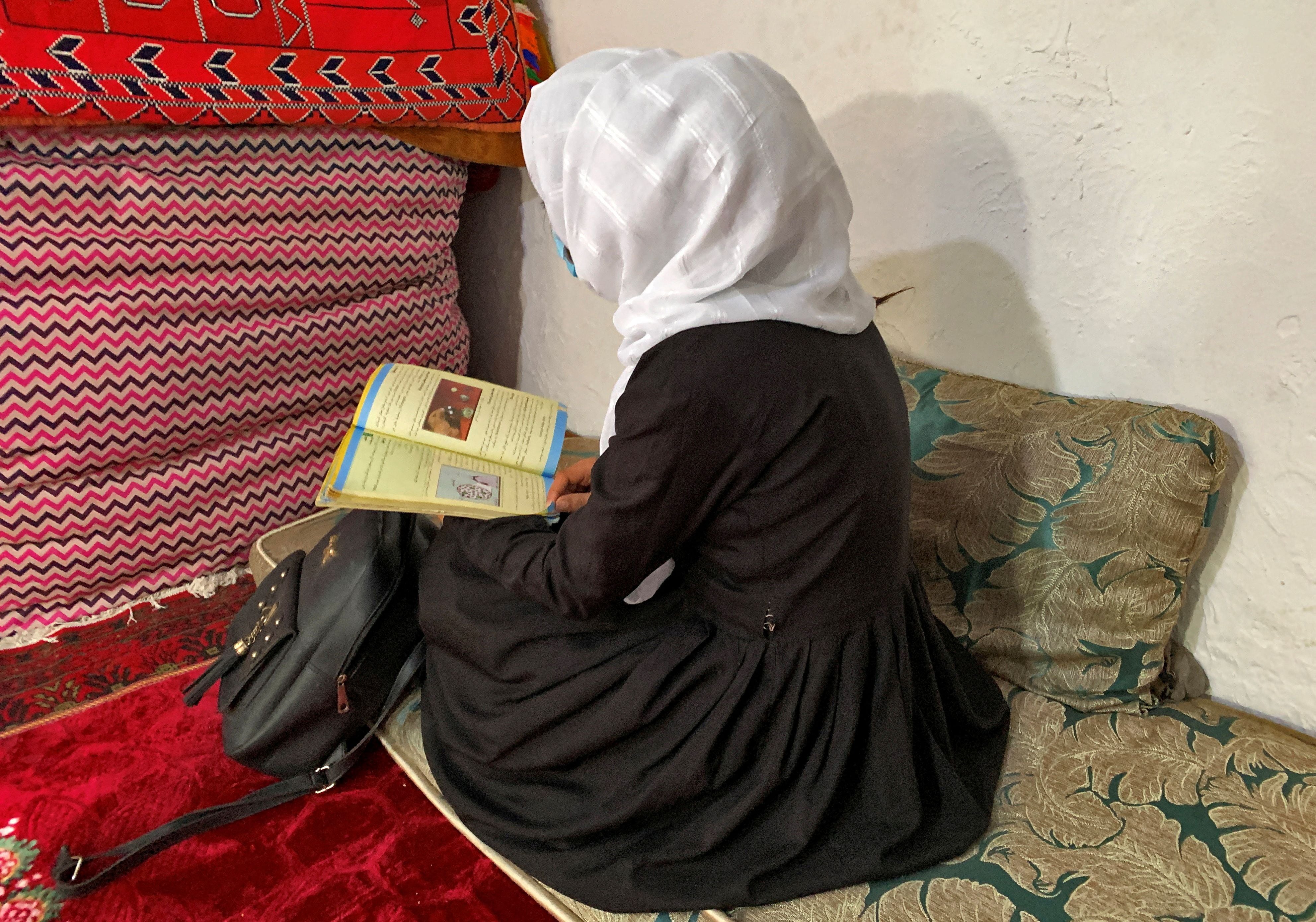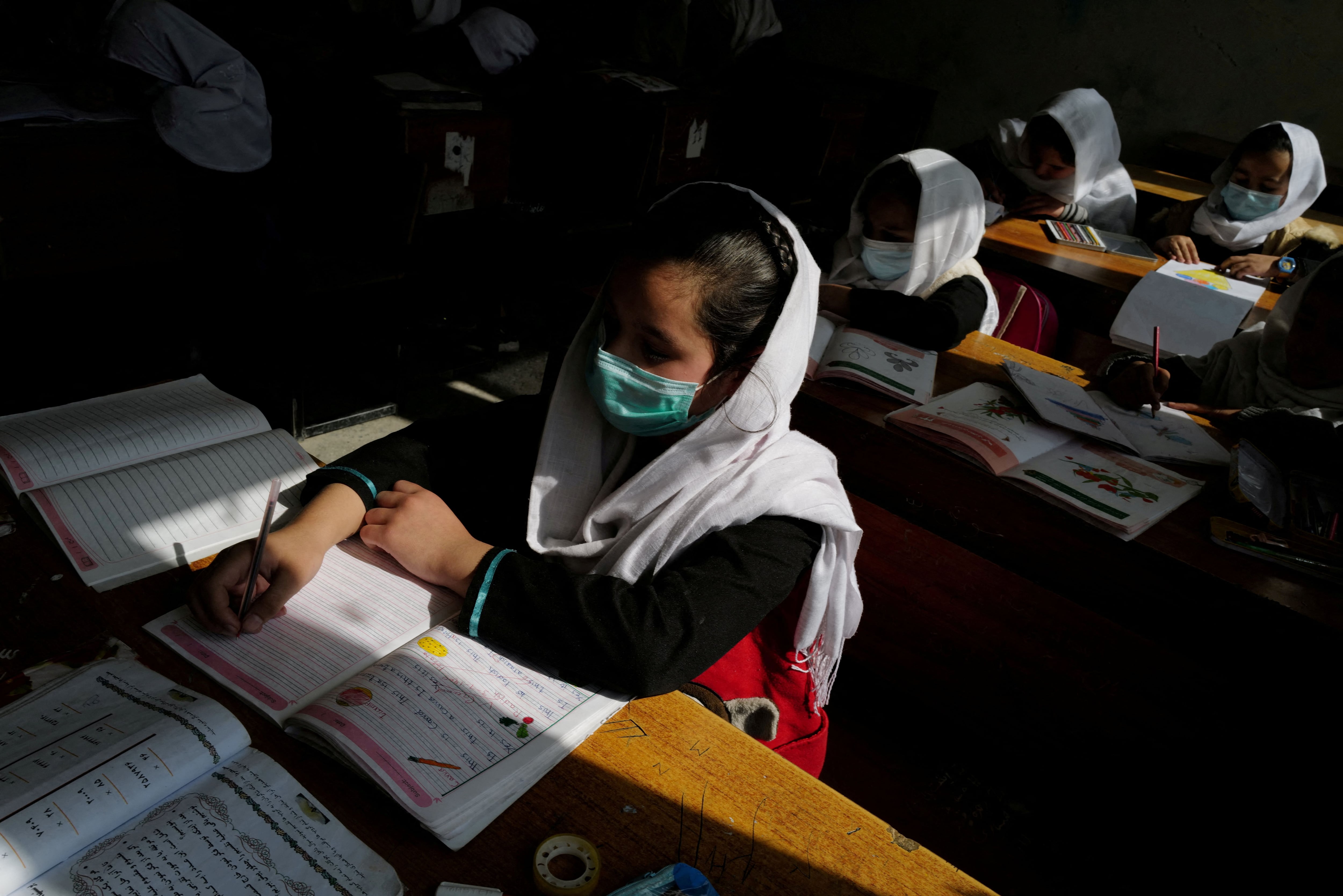
The Taliban sex-segregated parks in the Afghan capital on Sunday, banning men and women from sharing these public spaces less than a week after preventing the expected return of teenage girls to secondary schools.
The Ministry for the Propagation of Virtue and Prevention of Vice of the Interim Government of Fundamentalists announced today that Kabul's gardens and amusement parks will be reserved for four days a week only for men, and the remaining three for women.
“Visiting days for recreation areas and parks are divided between men and women, and women should wear the veil,” the portfolio said in a statement.
Authorities indicated that those who violate the law would be punished.
This new measure comes after the Taliban prevented last Wednesday the expected return of teenage girls to secondary schools in Afghanistan, despite multiple official promises in this regard.

This closure, which has continued since the formation took power last August, has been criticized by the international community.
Today's is one more of the limitations imposed by the Taliban since they came to power.
Last December, the Ministry of Virtue banned women's travel without a veil and without a male companion on long journeys in Kabul, in a series of regulations that also prevent taxi drivers from playing music.
During their first stay in power, between 1996 and 2001, the fundamentalists followed a rigid interpretation of Islam, which led them to ban women's school attendance and to put women in the home.
PROTESTS IN THE FACE OF LACK OF EDUCATION
Dozens of students, parents and teachers demonstrated this Saturday near the Afghan Ministry of Education, protesting the Taliban's decision this week to keep schools closed for high school girls despite their promises of openness.

“We want justice for Afghan girls, we want work and education,” the dozens of Kabulians present chanted to show their rejection of the fundamentalists' decision.
Zulia Parsi, one of the organizers of the protest and member of the so-called Spontaneous Movement of Women Activists, told Efe that they “protested the reopening of secondary and higher schools” for girls in a “tense” environment.
Faced with the Taliban's general ban on protests against its regime, the group has held closed-door demonstrations in the past and other actions to claim the threatened rights of women in Afghanistan.
“The protest was planned in front of the Ministry of Education, but the Taliban government did not give us permission and threatened us not to go,” one of the protesters, activist Laila Baseem, told Efe.
The protest took place near the building anyway, three days after fundamentalists prevented teenage girls from returning to classrooms after seven months of closure, since the Taliban took control of the country last August.

The Taliban Government had initially stated that they prevented adolescent girls from returning to secondary schools in order to “adapt” their education to Islamic or Sharia law.
The Taliban recently announced, however, that the reopening of classes after the winter break would also include female high school students.
The sudden decision to maintain the closure caused disappointment among male and female students and the indignation of the international community.
The UN was very surprised by the decision, stating that the continued closure “violates the human rights of women and girls.”
(with information from EFE)
KEEP READING:
Últimas Noticias
Debanhi Escobar: they secured the motel where she was found lifeless in a cistern
Members of the Specialized Prosecutor's Office in Nuevo León secured the Nueva Castilla Motel as part of the investigations into the case

The oldest person in the world died at the age of 119
Kane Tanaka lived in Japan. She was born six months earlier than George Orwell, the same year that the Wright brothers first flew, and Marie Curie became the first woman to win a Nobel Prize

Macabre find in CDMX: they left a body bagged and tied in a taxi
The body was left in the back seats of the car. It was covered with black bags and tied with industrial tape
The eagles of America will face Manchester City in a duel of legends. Here are the details
The top Mexican football champion will play a match with Pep Guardiola's squad in the Lone Star Cup

Why is it good to bring dogs out to know the world when they are puppies
A so-called protection against the spread of diseases threatens the integral development of dogs




